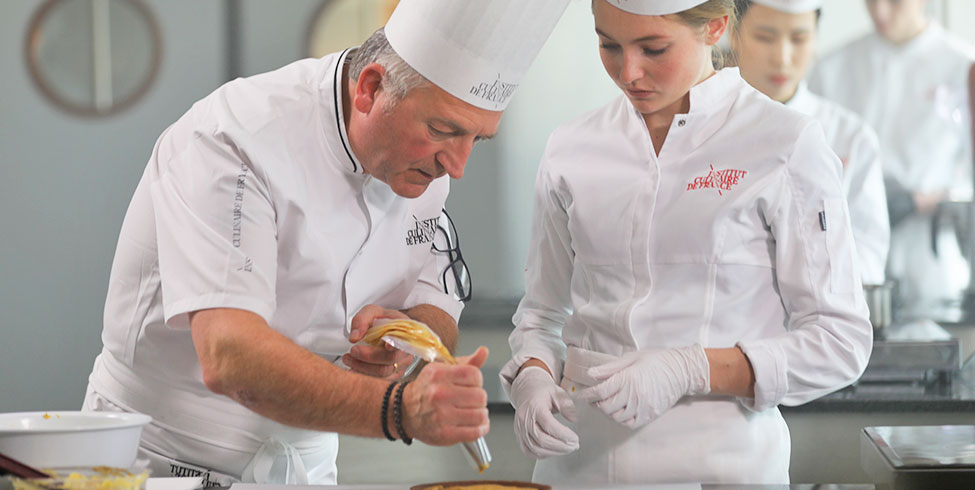When we think of a pastry chef, our minds often conjure images of delicate macarons, towering wedding cakes, and perfectly flaky croissants. While these creations are certainly part of the job, the role of a pastry chef is far more complex and demanding than simply baking sweets. It is a position that requires a unique blend of artistry, precision, and business acumen. This article will go beyond the delicious façade to provide a comprehensive look at the pastry chef job description, outlining the key responsibilities, required skills, and the career path that leads to this sweet profession.

The Core Responsibilities: From Creation to Management
A pastry chef’s duties extend far beyond the mixing bowl. They are responsible for the entire dessert program of a restaurant, hotel, or bakery. Their daily tasks can be categorized into three main areas: creation, production, and management.
- Creation & Menu Development: This is the artistic heart of the job. A pastry chef is tasked with developing new dessert recipes that align with the establishment’s style and seasonal ingredients. This involves extensive research, experimentation, and a deep understanding of flavor profiles. They must create a menu that is not only delicious but also visually appealing and cost-effective.
- Production & Execution: Once a menu is set, the pastry chef is in charge of executing it with flawless precision. This includes preparing and baking all pastries, bread, and desserts for the day’s service. They must ensure consistency in quality, taste, and presentation, often working to meet tight deadlines for multiple orders, from plated desserts for dinner service to large-scale banquet orders.
- Kitchen Management: A pastry chef is a leader. They are responsible for managing a team of bakers and pastry assistants, overseeing their training, and delegating tasks. This also involves managing inventory, ordering ingredients, and ensuring all kitchen equipment is well-maintained. A key part of their role is maintaining strict sanitation and hygiene standards, a non-negotiable in any kitchen.
Essential Skills and Qualifications
Becoming a successful pastry chef requires a specific set of skills that go beyond a passion for baking.
- Technical Skills and Precision: Pastry is a science. Unlike savory cooking, which often allows for improvisation, baking requires exact measurements and precise techniques. A pastry chef must have a strong command of a wide range of baking methods, from working with yeast dough to tempering chocolate and creating complex sugar work.
- Creativity and Artistic Flair: While precision is crucial, the ability to create beautiful, innovative desserts is what sets a great pastry chef apart. They must have a keen eye for detail, an understanding of color theory, and the ability to plate food in a way that is both elegant and imaginative.
- Time Management and Organization: A fast-paced kitchen demands excellent time management. Pastry chefs must be able to juggle multiple tasks, from preparing doughs that require hours of proofing to assembling delicate desserts just before service. Organization is key to preventing mistakes and ensuring a smooth workflow.
- Business Acumen: Many pastry chefs are responsible for managing their budget, tracking food costs, and controlling waste. They must be able to price their creations profitably while maintaining high-quality standards.
The Career Path to the Pastry Kitchen
The journey to becoming a pastry chef typically involves a combination of formal education and hands-on experience.
- Formal Education: While not always required, a degree from a reputable culinary arts program or pastry school provides a strong foundation in both technical skills and business management. It offers a structured way to learn the fundamentals and often includes valuable internship opportunities.
- Apprenticeship and Experience: The best way to learn is by doing. Aspiring pastry chefs often start as apprentices or assistants, working their way up the kitchen ranks. This hands-on experience is invaluable, as it teaches them the rhythm of a professional kitchen and the realities of the job.
- Specialization: As they gain experience, many pastry chefs choose to specialize in a particular area, such as chocolate work, bread making, or wedding cakes, which can open up new career opportunities.
Conclusion: The Sweet Reward
The pastry chef job description is a testament to the fact that this is a demanding, multifaceted career. It’s a role that requires a rare combination of scientific precision, artistic vision, and strong leadership skills. While the hours can be long and the work is physically demanding, the reward lies in the ability to create moments of pure joy for others. For those with a true passion for the craft, a career as a pastry chef offers the opportunity to turn a simple recipe into a work of art, a creation that can delight and inspire.